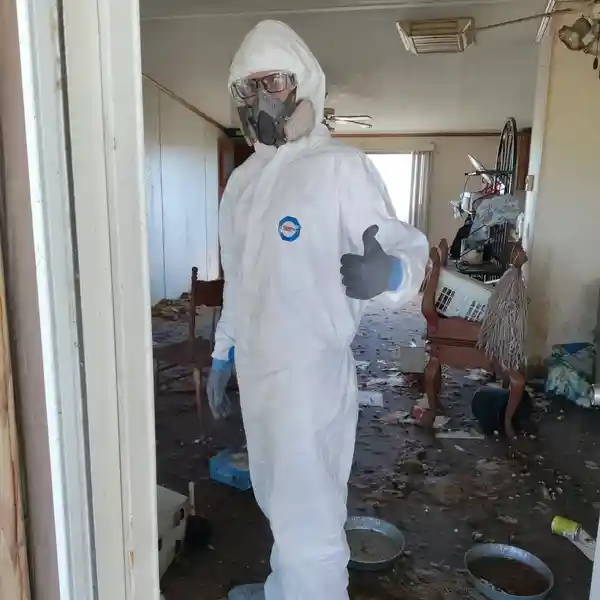
In a world increasingly aware of the importance of hygiene, health, and environmental sustainability, cleaning and remediation services have become essential components for residential, commercial, and industrial sectors. These services not only maintain cleanliness but also address serious issues such as contamination, mold growth, and Biohazard cleaning support for senior caregivers. This article explores the significance, types, and benefits of cleaning and remediation services.
Understanding Cleaning and Remediation Services
Cleaning and remediation services encompass a broad range of activities designed to restore and maintain safe and healthy environments. While traditional cleaning focuses on the removal of dirt, dust, and debris, remediation services target specific contaminants and hazards that could pose risks to human health or the environment.
Key Components of Cleaning Services
- Residential Cleaning: This includes routine tasks such as dusting, vacuuming, mopping, and sanitizing surfaces in homes. Many companies offer specialized services like deep cleaning, move-in/move-out cleaning, and post-event cleanup.
- Commercial Cleaning: Businesses require regular cleaning to ensure a professional appearance and maintain employee health. Commercial cleaning services can include office cleaning, floor maintenance, window washing, and restroom sanitation.
- Specialized Cleaning: Certain industries, such as healthcare and food service, require specialized cleaning protocols to meet regulatory standards. Services may involve disinfecting medical facilities or cleaning food production areas to prevent contamination.
Key Components of Remediation Services
- Mold Remediation: Mold can pose serious health risks and cause structural damage to properties. Mold remediation services involve identifying the source of moisture, safely removing mold, and restoring affected areas to prevent future growth.
- Water Damage Restoration: Following floods, leaks, or other water-related incidents, professional remediation services can extract water, dry affected areas, and restore properties to their pre-damage condition. This process also helps prevent mold growth and structural deterioration.
- Hazardous Material Cleanup: In industrial settings, spills or exposure to hazardous materials can occur. Remediation services ensure safe removal and disposal of these materials, complying with environmental regulations and protecting public health.
- Environmental Remediation: This includes the cleanup of contaminated land or water sources. Techniques may involve soil decontamination, groundwater treatment, and the safe disposal of hazardous waste.
The Importance of Cleaning and Remediation Services
- Health and Safety: Clean and well-maintained environments reduce the risk of illness and injury. Cleaning services help minimize allergens, pathogens, and toxins, creating healthier spaces for occupants.
- Property Preservation: Regular cleaning and prompt remediation can prevent costly damages and prolong the lifespan of structures. For instance, addressing mold or water damage early can save homeowners significant repair costs.
- Regulatory Compliance: Many industries must adhere to strict health and safety regulations. Professional cleaning and remediation services ensure compliance, protecting businesses from potential fines or legal issues.
- Enhanced Aesthetics: Clean environments not only look appealing but also foster a positive atmosphere. This is especially important in commercial settings, where cleanliness can impact customer perceptions and employee morale.
- Environmental Protection: Remediation services play a crucial role in protecting the environment. By properly managing hazardous materials and restoring contaminated areas, these services contribute to a healthier planet.
Choosing the Right Cleaning and Remediation Service
When selecting a cleaning and remediation service, consider the following factors:
- Experience and Reputation: Look for companies with a proven track record and positive customer reviews. Established businesses are more likely to have the expertise and resources necessary to handle various cleaning and remediation challenges.
- Certifications and Licenses: Ensure that the company is licensed and certified to perform specialized services, especially for mold remediation or hazardous material cleanup. This guarantees adherence to industry standards and regulations.
- Insurance Coverage: Verify that the company has liability insurance to protect against potential damages or accidents during the cleaning and remediation process.
- Customized Services: Choose a provider that offers tailored solutions based on your specific needs. This flexibility ensures that the services provided are effective and meet your requirements.
- Sustainability Practices: Consider companies that utilize eco-friendly cleaning products and methods. Sustainable practices not only protect the environment but also contribute to healthier indoor air quality.
Conclusion
Cleaning and remediation services are vital for maintaining safe, healthy, and aesthetically pleasing environments. Whether for residential, commercial, or industrial purposes, these services address a wide range of cleaning and contamination issues, ensuring compliance with health regulations and promoting overall well-being. By understanding the importance of these services and choosing the right provider, individuals and businesses can protect their investments, enhance their environments, and contribute to a healthier future.
